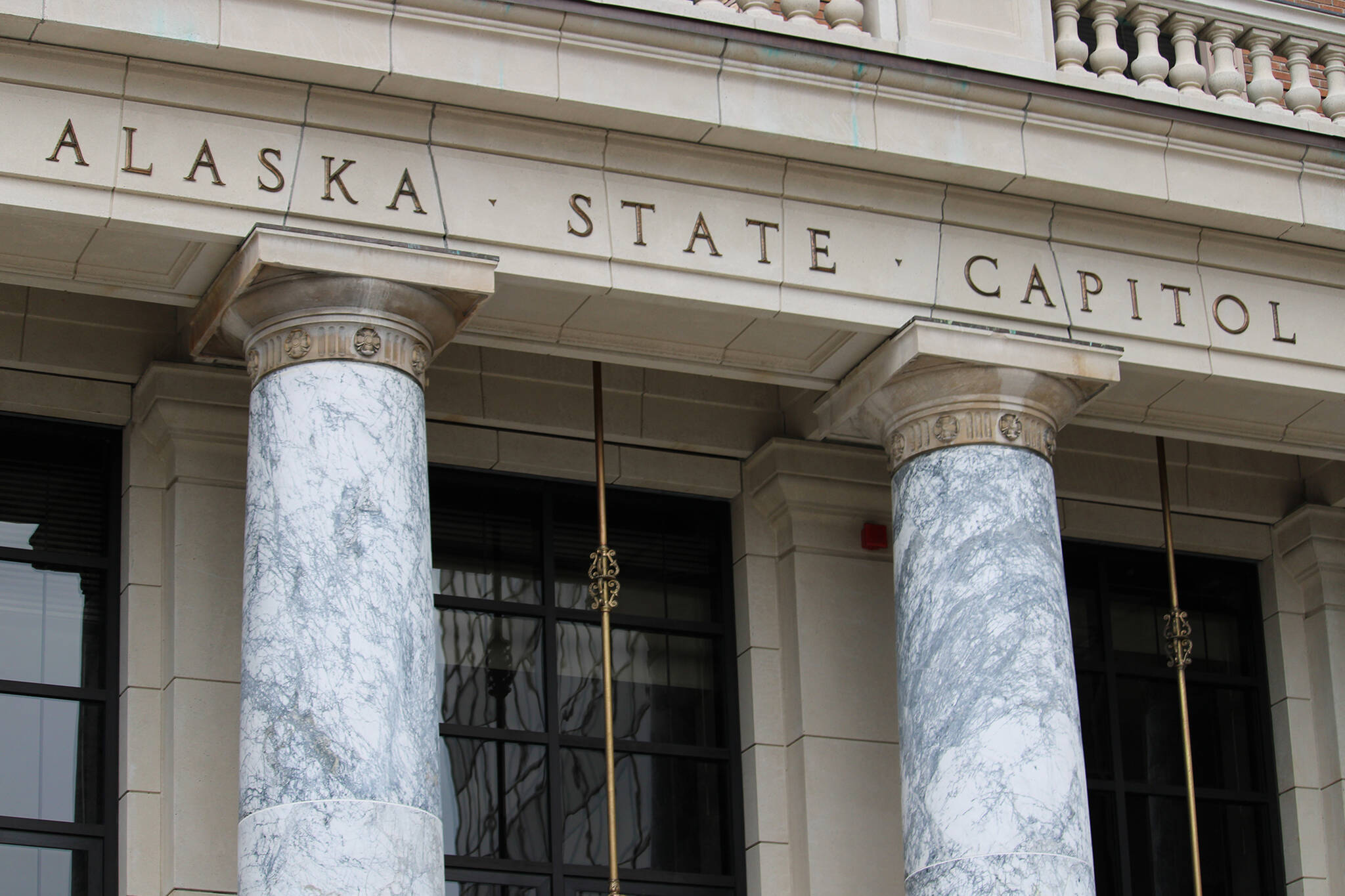It’s a rare thing in American politics when a Republican proposes new or increased taxes. But last week, Rep. Ben Carpenter, R-Nikiski, introduced legislation for a 2% statewide sales tax. It follows one from Senate President Gary Stevens, R-Kodiak, that would impose a 25% tax on the retail price of e-cigarettes. But even if the Legislature passes both, there’s a good chance they’ll meet their demise under the veto pen of Gov. Mike Dunleavy.
And it won’t be just because Dunleavy believes voters should approve new taxes. He’d rather punt the state’s chronic budget problem into the future than be remembered for raising them.
Stevens’ bill is basically a new version of the 35% tax he sponsored last year that would have brought in very little new revenue. It passed both chambers but was vetoed by Dunleavy.
There’s no fiscal note attached to Carpenter’s sales tax bill yet. It’s supposedly one piece of a comprehensive plan. He previously introduced legislation to lower the corporate income tax rate from 9.4% to 2%. The third is establishing a new Alaska Permanent Fund dividend formula, which he hasn’t yet developed.
Carpenter argues cutting corporate tax rates is justified because businesses pass most of that cost on to consumers. The Department of Revenue estimates it will result in $340 million in lost revenue each year. A 2% sales tax is unlikely to offset that.
Sen. Bill Wielechowski, D-Anchorage, offered the only other tax proposal. It’s a three-pronged approach focused on the oil industry. The major component calls for a reduction in tax credits the oil companies can claim each year. It’s not the first time he’s sponsored such a bill. But Republicans have never supported it. And they probably won’t this year either.
In any case, none of these alone are a long-term fiscal solution. They need to be debated in a single bill alongside a permanent change to the PFD formula and any other tax proposals.
Seven years ago, Gov. Bill Walker put a lot of energy into developing such a plan. It included using some of the permanent fund earnings for state spending alongside budget cuts and new tax revenue from personal income, mining, fishing, tourism, transportation fuels, alcohol and tobacco. Oil tax credit reform was also included.
“Not a single one of these actions is easy or popular,” Walker wrote in the Anchorage Daily News. “But doing nothing is far worse.”
But the Legislature did nothing. Both parties found enough wrong with his plan to effectively keep it all off the table.
Walker implemented the first part anyway by vetoing half of the PFD appropriation that summer. The following year, a legislative majority saw the wisdom in that and reduced the PFD themselves.
Dunleavy, who was a senator at the time, strongly opposed that and withdrew from the majority caucus. Campaigning for governor a year later, he promised a full PFD, three years’ worth of retroactive PFD payouts, no new taxes, no major budget cuts and a budget balanced without withdrawing significant funds from the state’s reserves.
The only promise he hasn’t broken is not raising taxes.
Federal COVID relief funds, then last year’s unanticipated hike in oil prices, temporarily closed the budget gap. Now that oil-related revenue has fallen, he’s asking legislators to take money from the budget reserves again.
But Dunleavy would like Alaskans to believe he’s identified an enormous amount of new revenue which will forever negate the need to raise taxes. The state will sell carbon credits, “as much as $30 billion or more over 20 years, just from our forest lands alone,” he claimed. But a report prepared by a consultant hired by his own Department of Natural Resources estimates three proposed pilot projects might earn a mere $8 million per year.
Dunleavy knows he’s spinning a hopeful fiscal future with figures he can’t back up. It’s the same governing philosophy that five American presidents practiced during the disastrous war in Vietnam. From Harry Truman to Richard Nixon, they knew it was unwinnable. But because they feared the political legacy of losing South Vietnam to communism, they repeatedly told Americans the opposite while waiting to pass the problem off to the next president.
In Dunleavy’s case, he’s betting that when the carbon credit revenue fails to materialize, his successor will take the fall for raising taxes.
• Rich Moniak is a Juneau resident and retired civil engineer with more than 25 years of experience working in the public sector. Columns, My Turns and Letters to the Editor represent the view of the author, not the view of the Juneau Empire. Have something to say? Here’s how to submit a My Turn or letter.

